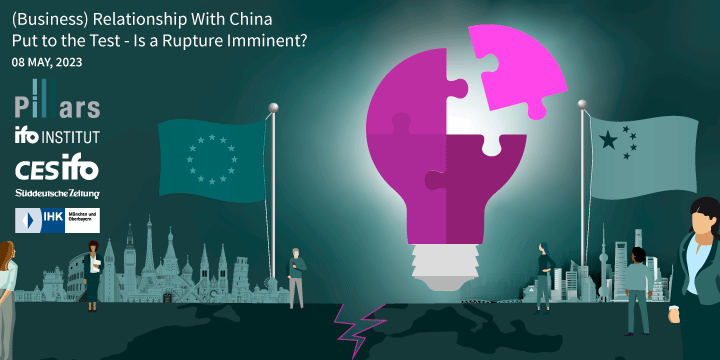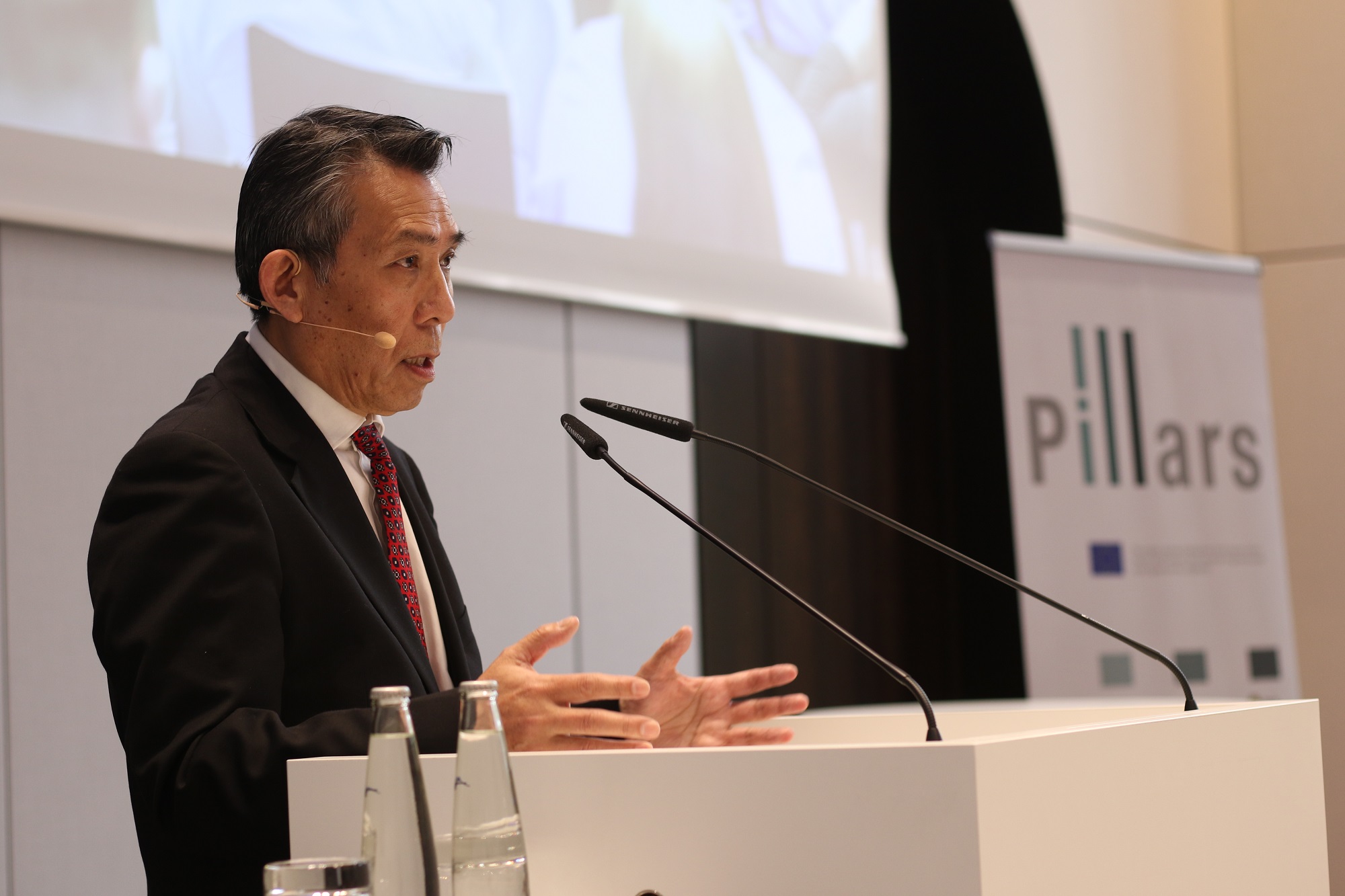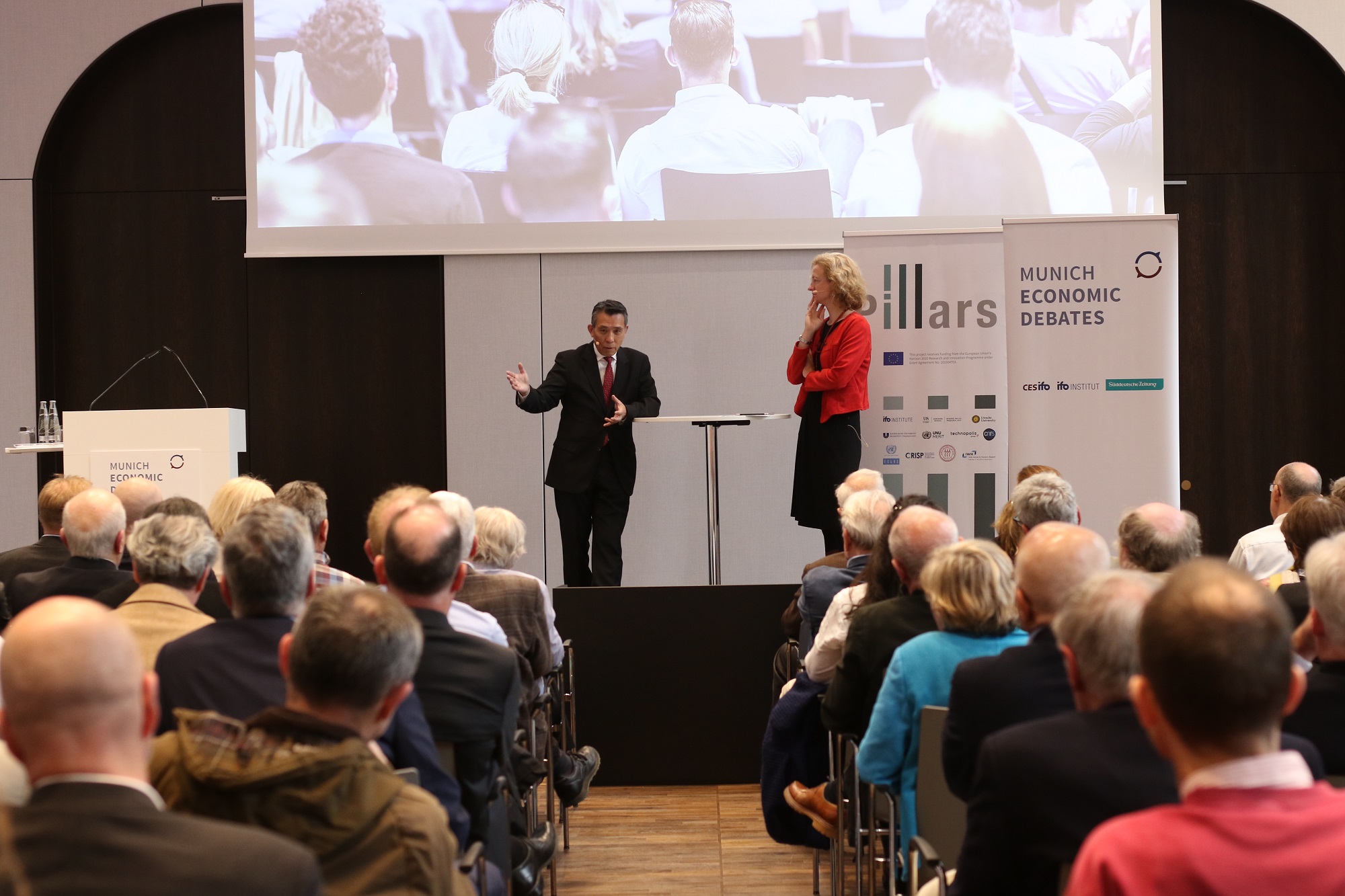China-Europe: Make Up or Break Up?
China and Europe pose a conundrum to each other. Europe squirms uncomfortably between the USA and China in their superpower competition, trying to stay on good terms with both at the same time as minimising any risk of economic or geopolitical fallout. China, in turn, must weigh which partnership to prioritise: its newly minted “no-limits” friendship with Russia, or a closer relationship with Europe as a counterweight to the pressure exerted, and restrictions imposed, on it by the US.

Germany is in a particularly tricky position. China has been its main trading partner for seven years in a row, with Germany shouldering a hefty deficit in their nearly 300-billion-euro yearly bilateral trade but also benefiting from China as a significant source of revenue for many of its industrial behemoths. Its total exposure to China, according to The Economist, is nearly 10% of GDP, by far the largest among Europe’s big economies. But Germany’s long reliance on Russian energy has taught it a painfully stark lesson: an overly strong dependence on autocratic regimes comes with significant economic and reputational downsides.
So, which way will the chips fall in the Europe-China relationship? For a more effective crystal-ball gazing, it is best to count on some expert insight. And no one better placed to provide it than Xuewu Gu, whom Pillars co-invited to a Munich Economic Debate organised jointly with the ifo Institute and the Süddeutsche Zeitung, a major German daily, to discuss the relationship’s prospects. Mr Gu, a political scientist, holds the International Relations chair at the Rheinische Friedrich-Wilhelms-Universität in Bonn, and is the Director of the Centre for Global Studies there. Born in China but a decades-long resident of Germany, he has a unique perspective on what both parties need and want.
Defining himself as a globalist, Mr Gu is convinced that bilateral dependency is risky—for both parties. That said, relinquishing trading relationships can be an even riskier proposition: the more international trading partners, the more flexibility in case of disruptions. Fittingly, in China, whose rise to superpower status Mr Gu sees as unstoppable, the loss of countries that are turning their backs on it, such as the US, Japan, South Korea and the Philippines, is fuelling the realisation that it would be to its advantage to seek a closer relationship with Europe—even if it means taking some distance from Russia.
From that perspective, China would welcome maintaining, or better expanding, trade relations with Europe. Europe, in turn, for all the talk of de-risking, depends on China for many critical inputs, such as precursors for antibiotics, rare earths, cobalt and processed lithium, to name but a few. A breakup would be painful for both sides and, according to Mr Gu, might prompt Beijing to tighten its embrace with Putin’s Russia. After all, China's main antagonist is the USA, the only country that can prevent it from becoming a world power. Thus, if no other friends are forthcoming, it would be obvious for the People's Republic to ally itself more tightly with Russia, which sees the USA in the same antagonistic light.
There are some encouraging signs, however, that China is reconsidering its geopolitical options. After entreaties from French President Emmanuel Macron and European Commission President Ursula von der Leyen, Xi Jinping called Ukraine’s leader, Volodymir Zelensky, for the first time since the war started. But, most of all, Mr Gu calls on European politicians to pay close attention to China’s new Prime Minister, Li Qiang, in whom he sees much promise. While very close to President Xi, Mr Li advocates more liberalisation and opening up of China, and was behind the lifting of the covid restrictions that had shackled the Chinese economy for so long.
So, while Mr Xi holds all the power, it is from people like Li Qiang that Mr Gu expects to see a change of course towards Europe, which not only would lower the geopolitical tension but, in the process, by keeping trade vibrant between China and Europe, give a mighty boost to their respective labour markets.
You can watch the talk by Prof Gu (in German) here.

